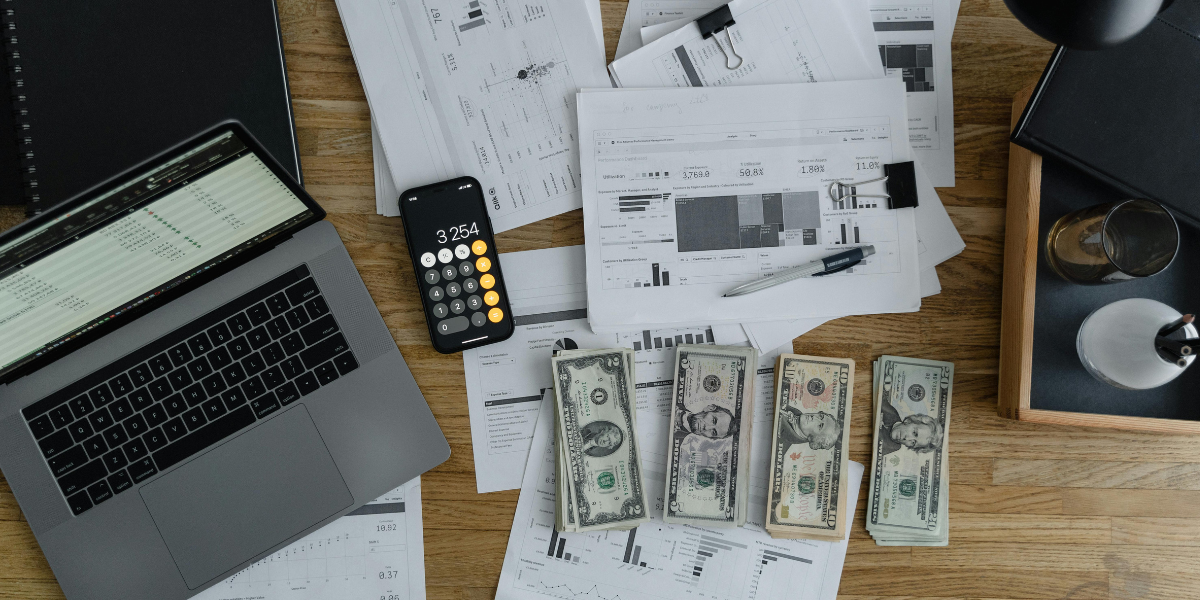.jpg)
The world of business has undergone a remarkable transformation in recent years, largely due to the dynamic and entrepreneurial spirit of women. Women-owned businesses are no longer just a niche market; they are a driving force in the global economy. The statistics are compelling: according to a 2023 report from the U.S. Small Business Administration, women own around 12 millions businesses in the United States, contributing over $1.8 trillion in revenue and employing 10 million individuals. These numbers not only reflect a significant increase in the number of women entrepreneurs but also highlight their vital role in job creation and economic growth.
In this era of women breaking through barriers and making their mark in diverse industries, it's crucial to explore the challenges and opportunities that lie ahead. One of the key challenges that women entrepreneurs, especially those with less-than-perfect credit, face is obtaining small business loans. Despite these hurdles, there are tailored solutions and options available to empower women with bad credit to achieve their entrepreneurial dreams. This article aims to shed light on the best small business loans for women with bad credit, providing statistical insights, practical tips, and valuable takeaways to help pave the way for their success.

The Reality of Women-Owned Businesses
Before delving into the financing options, let's take a moment to appreciate the impact of women-owned businesses. According to the National Association of Women Business Owners (NAWBO), there are approximately 12.3 million women-owned businesses in the United States, generating over $1.8 trillion in revenues and employing millions of people. Despite this impressive growth, women-owned businesses still face challenges in accessing capital, particularly for those with bad credit.
The Challenge of Bad Credit
A poor credit history can be a significant barrier to obtaining traditional business loans. Bad credit can result from various factors, such as personal financial struggles, prior business setbacks, or even a lack of established credit. According to a 2020 study by the Federal Reserve, 45% of small businesses have reported credit access issues. This statistic underscores the need for alternative financing solutions.

Top Small Business Loans for Women with Bad Credit
Microloans
Microloans are an excellent starting point for women entrepreneurs with bad credit. These loans, typically ranging from $500 to $50,000, are provided by various organizations, including microlenders and nonprofit groups. They often come with more lenient credit requirements, making them accessible to those with bad credit.
Online Lenders
Online lenders, such as OnDeck and Kabbage, specialize in serving borrowers with less-than-perfect credit. They use alternative criteria, such as business cash flow and revenue, to evaluate loan applications. Be mindful of the higher interest rates associated with these loans.
Small Business Administration (SBA) Loans
The SBA offers government-backed loan programs, including the 7(a) loan. Although SBA loans have credit score requirements, the SBA's guarantee can make it easier for women with bad credit to secure funding. According to the SBA, women-owned businesses received over $9.3 billion in SBA-backed loans in 2020.
Alternative Lending Options
Explore peer-to-peer lending platforms, invoice financing, or merchant cash advances. These options may be more accessible to borrowers with bad credit, but they often come with higher costs and shorter repayment terms.
Collateral-Based Loans
If you have valuable assets, consider using them as collateral. Collateral can mitigate the lender's risk, increasing your chances of approval.
Improving Credit Scores
In parallel with seeking financing, work on enhancing your credit profile. Pay bills on time, reduce outstanding debts, and dispute inaccuracies on your credit report. A better credit score can lead to more favorable financing terms in the future.
Key Takeaways
- The number of women-owned businesses is on the rise, but they still face challenges in accessing capital.
- Bad credit can be a significant hurdle to securing traditional business loans, but alternative financing options are available.
- Microloans, online lenders, SBA loans, and collateral-based loans are among the best options for women with bad credit.
- It's crucial to work on improving your credit score for better financing opportunities down the road.
- Explore grants, competitions, and pitch events tailored to women entrepreneurs, which can provide non-repayable funding.
Frequently Asked Questions (FAQs) related to small business loans for women with bad credit
What are small business loans for women with bad credit?
Small business loans for women with bad credit are financing options designed to help female entrepreneurs who have less-than-perfect credit scores secure funding for their businesses. These loans are tailored to meet the unique needs and challenges faced by women-owned businesses with credit challenges.
What constitutes "bad credit" in the context of small business loans?
Bad credit typically refers to a low credit score, often below 600. Lenders assess creditworthiness based on factors like payment history, outstanding debts, credit utilization, and credit history. A low credit score may be the result of missed payments, defaults, or other financial setbacks.
Are there specific lenders that cater to women entrepreneurs with bad credit?
Some microlenders, online lenders, and nonprofit organizations focus on assisting women entrepreneurs, including those with bad credit. These lenders often have more flexible credit requirements and may offer specialized programs or resources.
What types of small business loans are available for women with bad credit?
Women with bad credit can access various financing options, including microloans, online business loans, Small Business Administration (SBA) loans, alternative lending, and collateral-based loans. Each has its own eligibility criteria and terms, so it's essential to choose the one that best fits your needs.
What can I do to improve my chances of getting approved for a small business loan with bad credit?
To increase your chances of approval, consider improving your credit score by paying bills on time, reducing outstanding debts, and disputing any credit report inaccuracies. Additionally, having a well-thought-out business plan and collateral can boost your credibility in the eyes of lenders.
What are the interest rates and terms for small business loans with bad credit?
Interest rates and terms can vary widely based on the type of loan and the lender. Generally, loans for individuals with bad credit may have higher interest rates and shorter repayment terms. It's crucial to carefully review the terms before accepting an offer.
Can I apply for grants or competitions specifically designed for women entrepreneurs with bad credit?
Yes, there are grants, competitions, and pitch events tailored to women entrepreneurs, which may not require repayment. While these opportunities can be highly competitive, they provide an alternative to traditional loans.
How do Small Business Administration (SBA) loans work for women with bad credit?
The SBA offers various loan programs, and while they have credit score requirements, the SBA's guarantee can make it easier for women with bad credit to secure funding. SBA loans typically have favorable interest rates and longer repayment terms.
Are there any tax benefits or incentives for women-owned businesses seeking loans?
Some regions and countries offer tax incentives or benefits for women-owned businesses. It's essential to research local and federal programs to determine if your business is eligible for any tax advantages related to loans and financing.
What are the best practices for using a small business loan to improve my business and credit score?
Utilize the loan wisely by investing in areas of your business that can generate revenue and help you repay the loan on time. Timely repayment can positively impact your credit score, making it easier to access better financing options in the future.
Remember that the specific terms and availability of loans for women with bad credit may vary by location and lender, so it's essential to conduct thorough research and consult with financial experts or business advisors to determine the best course of action for your unique situation.







